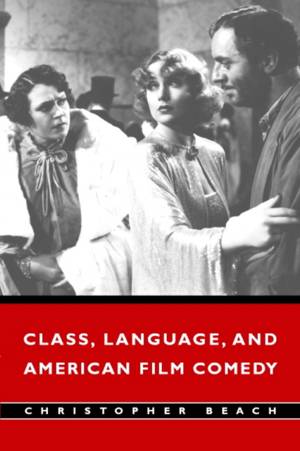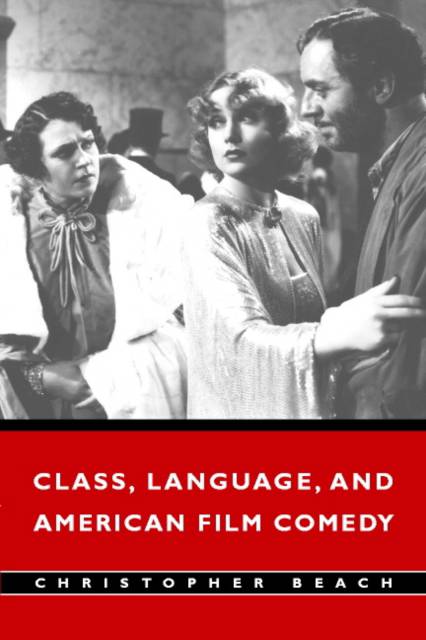
Bedankt voor het vertrouwen het afgelopen jaar! Om jou te bedanken bieden we GRATIS verzending (in België) aan op alles gedurende de hele maand januari.
- Afhalen na 1 uur in een winkel met voorraad
- In januari gratis thuislevering in België
- Ruim aanbod met 7 miljoen producten
Bedankt voor het vertrouwen het afgelopen jaar! Om jou te bedanken bieden we GRATIS verzending (in België) aan op alles gedurende de hele maand januari.
- Afhalen na 1 uur in een winkel met voorraad
- In januari gratis thuislevering in België
- Ruim aanbod met 7 miljoen producten
Zoeken
€ 74,95
+ 149 punten
Uitvoering
Omschrijving
Examining the evolution of American film comedy since the beginning of the sound era (c. 1930), Christopher Beach focuses on how language, class, and social relationships in early sound comedies by the Marx Brothers, the screwball comedies of the 1930s by Capra, Sturges and others, and 1950s comedies of Frank Tashlin and Vincente Minnelli, and contemporary films by Woody Allen, Whit Stillman, and the Coen brothers. Beach argues that sound and narrative expanded the semiotic and ideological potential of a film, providing moments of genuine social critique and also mass entertainment. Christopher Beach teaches at the University of California, Irvine, and has taught at the University of Montana and Claremont Graduate University. He is the author of three books on American poetry, including Poetic Culture (Northwestern, 1999). This is his first book on film.
Specificaties
Betrokkenen
- Auteur(s):
- Uitgeverij:
Inhoud
- Aantal bladzijden:
- 252
- Taal:
- Engels
Eigenschappen
- Productcode (EAN):
- 9780521002097
- Verschijningsdatum:
- 11/02/2002
- Uitvoering:
- Paperback
- Formaat:
- Trade paperback (VS)
- Afmetingen:
- 150 mm x 233 mm
- Gewicht:
- 362 g

Alleen bij Standaard Boekhandel
+ 149 punten op je klantenkaart van Standaard Boekhandel
Beoordelingen
We publiceren alleen reviews die voldoen aan de voorwaarden voor reviews. Bekijk onze voorwaarden voor reviews.









